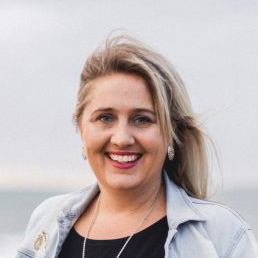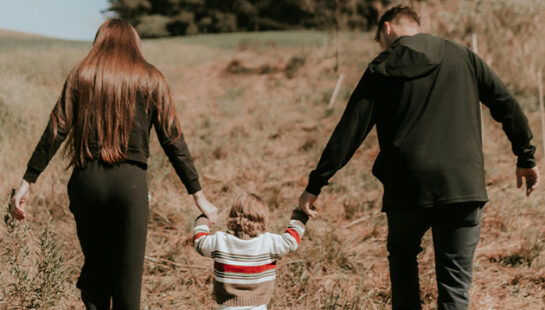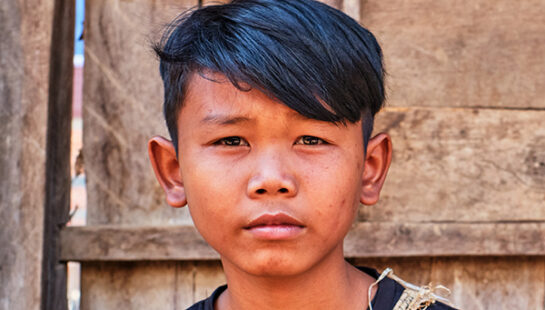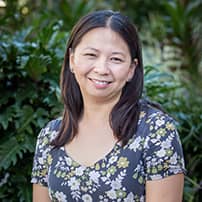My name is Amanda Viviers and I am a novice Mum of two small children. I was one of the women who went on this recent trip. Saying goodbye to my children at the airport and taking myself into uncomfortable places was both a privilege and the greatest of challenges.
When six women from Australia step off a plane with luggage for eight days in Nepal, you hardly know what to expect. Weighed down with bags, camera gear and hiking boots, we were definitely in for a trip of the unexpected!
To see humanity with different eyes and to observe, first hand, the work of Baptist World Aid and their local partners—just ten months on from the Nepal earthquakes—was life changing.
My greatest discovery from my time in Nepal, was the realisation that no matter the difficulty, no matter the problems, we as women essentially are all the same. We care about how others see us, we worry about our children, we deeply grieve the loss of loved ones and we want to live a life of significance.
Kathmandu was completely different to any city that I have ever experienced before. It had a complex mix of European culture, Indian heritage and Asian influence—as well as landscapes for days! As we slowly drove through village after village, I saw the cracks that last year’s earthquakes left in the architecture influenced by Nepal’s diverse cultural make-up. It made me so aware of the instability that pervades the lives of people whose history already tells the story of an ongoing struggle towards development.
To sit with and listen to the local partner staff who were working, not only in relief (of the immediate impact of the recent disaster) but also in ongoing development work (which has been in motion for years).
To see practically how just handing out money does not bring transformational change to challenged communities, and to begin to understand that change comes from the ground-up; through helping those indigenous communities work together and actively take hold of their country’s future.
It was inspiring.
We met so many young people who shared their stories with passion. These stories are the greatest example of the profound change which can come from working with a community to break the cycle of poverty. In a nation where more than ninety per cent of children are now in school, we heard story after story about positive change in young lives.
We sat with women’s Self Help Groups and saw how they were forming their communities and connecting with others in hard to reach villages through a simple process of saving and loaning.
But in all these stories of change, there was one story which changed me.
The story is about a woman who had borrowed money from her Self Help Group in rural Nepal. She told me how her family’s future had been irrevocably changed for the better by a market garden she had planted in her own front yard. Before she got involved with the program, her husband had taken work overseas to pay off debt which her own heart surgery had left them in. But since joining the Self Help Group she, as a worker in her own business, has been able to finish paying off that debt. Her husband is now back at home and they can also afford to send the children to school.
In the midst of her story—just as she was telling me how grateful she was for this amazing opportunity that her family had been given—I looked down and saw that she had fixed her broken thong with a piece of string.
It was as I sat there covered in dust—watching her children offer us chai tea from their kitchen and her husband standing off to the side wearing a big smile; so proud of his wife—that my heart was filled with perspective.
A tear dripped down my face.
I sat there on a rickety bench longing to be the one to walk in her broken shoes. She was content; she was grateful; she was completely overwhelmed by the opportunity to dig in her garden and take produce to the market each month to provide for her growing family.
Her broken shoes broke me.
Just as I was leaving for my trip to Nepal my favourite walking shoes broke and I rushed to the shops for glue. Whilst packing my last bag and finalising luggage for the trip I stuck the sole back together in preparation for the days to come.
I realised then that we are essentially the same. I want my little people to have an education, I want my husband to be proud of me and I want to make a difference in my community and world.
So often when we take these kind of trips, we go overseas with noble intentions; assuming that we are going to make a difference and bring change. However my trip to Nepal showed me that, in reality, we are all essentially the same. Yes, I may have more opportunity and my western lifestyle might seem more superior, but there is also more common ground than there is difference.
We too should live lives of gratitude, fortitude and resilience in the midst of our challenges.
When we walk in another’s shoes, and listen to the story that their life sings, we gain perspective of the power of humanity. We might not have all the answers, but what we do have is the gift of compassion and our attention.
Women of Nepal, you most definitely have my attention. And I will do all I can to take a walk in your shoes as I step back into my everyday life here in Australia. Thank you for the privilege of giving me your own time and attention.
Your stories, which you so generously shared, have both broken and healed me.



 Heather Keith,
Heather Keith,

 Sophia Russell,
Sophia Russell,